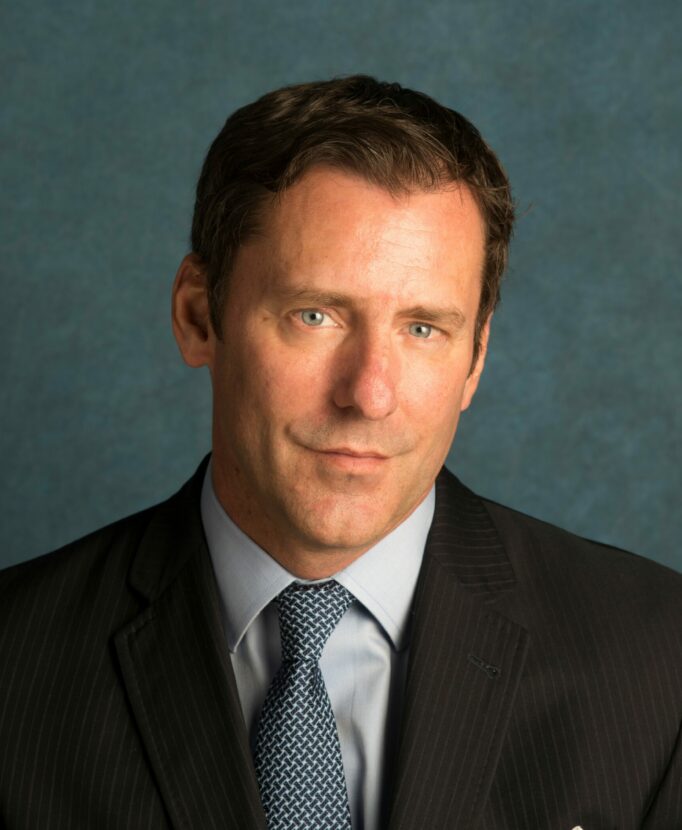Deep Dive
Make Your Mark: Lessons in Character From Seven Presidents
Mark Updegrove, presidential historian and author, examines the character traits that defined seven U.S. Presidents, exploring how their leadership shaped history, inspired a nation, and offers timeless lessons for today’s leaders.

Cliches often ring true. Some years back, my assistant came into my office with a quick reminder that my speech was in 20 minutes.
“What speech?” I asked.
“The speech you agreed to do for a group of 200 business leaders on the Presidents you’ve known,” she replied.
“Oh, that speech,” I said. What I was thinking was, What speech again?
To this day I don’t remember agreeing to it, and it was mysteriously absent from my calendar. But there wasn’t time to quibble, I had a speech to give—in 20 minutes!
That’s where the cliché came into play, with a “back of an envelope” scribbled outline. I wrote the names of the seven Presidents I have come to know in my career as a presidential historian — from Gerald Ford through Barack Obama — and the character trait that imbued their most significant accomplishments.
The speech I delivered — “Lessons in Character from Seven Presidents” — proved to be a big hit, and has been requested often through the years including a number of WSB clients and President George H.W. Bush, who asked that I give it for his Points of Light Foundation.
Last year, my wife insisted that the speech would make an inspiring book. My editor agreed. Make Your Mark: Lessons in Character from Seven Presidents will be published by HarperCollins in March 2025. Following is an edited version of the book’s introduction that takes those back-of-the-envelope notes and puts a bit more meat on the bone.
I’d welcome the chance to give the speech to any of your clients at WSB—and I promise that the engagement will make it on my calendar.
Clare Boothe Luce, the trailblazing congresswoman from Connecticut and Pulitzer Prize-winning playwright of “The Women,” used to lecture the presidents she knew—from Herbert Hoover to Ronald Reagan.
“A great man is one sentence,” she said. “History has no time for more than one sentence, and it is always a sentence that has an active verb.”
She would then illustrate; Lincoln: “He preserved the union and freed the slaves.” Franklin Roosevelt: “He lifted us out of the Great Depression and helped us win a world war.”
Finally, she would challenge them: “What is your sentence?”
When she posed the question to John F. Kennedy just weeks before the Cuban Missile Crisis, he dismissed it by informing her, “I am not interested in my place in history.”
Nonsense. Kennedy aimed to be a great president and had an eye on history, which he read passionately. He also knew she was right; while not confined to one sentence, history is often drawn in the most succinct of terms. If it regards a president at all, it is bound to be a concise assessment of his most consequential and far-reaching deeds, whether they reflect on him positively or not.
But underlying history’s judgement, cursory or otherwise, are defining character traits that infuse his legacy and serve as a reminder that in leadership character matters above all, ringing as true today as when the Greek philosopher Heraclitus wrote “Character is destiny” nearly 3,000 years ago. Character is the rudder that directs a President’s deeds and decisions, and, in large measure, our nation’s course.
It’s especially true in the presidency, guiding our Presidents through the weightiest hours in an office Roosevelt called “preeminently a place of moral leadership.” Luce’s sentence for him — “He lifted us out of the Great Depression and helped us win a world war” — spoke to FDR’s buoyancy in leading us through the biggest economic calamity in American history and his resolve to keep the world safe for democracy by prevailing in World War II.
Her sentence for Lincoln — “He preserved the union and freed the slaves” — attested to his will in keeping our nation whole by winning the Civil War and his compassion in seeing to the abolition of slavery.
Throughout my career as an author, publisher, journalist, television commentator, and head of a presidential library and foundation, I have had the privilege of interviewing and hosting seven U.S. Presidents. My access to and study of those men has given me a firm sense of their character and how it came to bear in their legacies, while informing my own leadership journey. In these pages, I’ll offer sketches of every president from Gerald Ford through Barack Obama, reflecting on the character trait that underlies his most significant accomplishments:
- Ford’s instinct to do the right thing in the wake of Watergate;
- Jimmy Carter’s mission to do good in the areas of peace and human rights during his presidency and throughout his post-presidency;
- Ronald Reagan’s optimism, restoring the nation’s confidence and pride after a sustained period of demoralizing setbacks;
- George H.W. Bush’s humility, helping to ensure a peaceful end to the Cold War that had seethed between the superpowers for over forty years;
- Bill Clinton’s resilience and determination to keep working for the American people in the face of political and personal obstacles;
- George W. Bush’s lifesaving charge to give back as the AIDS epidemic spread unchecked throughout much of the developing world;
- and Obama’s grace as the first African American to hold the country’s highest office.
It is not my intention to aggrandize these men or to suggest that all will be seen as great leaders who have earned a place in the presidential pantheon. Each had his own trails, and none succeeded as he may have wished. And each will earn his own grade for his turn in the White House. But, in my view, each loved our country, put its interests above his own, and did his best. We can ask for little more.
Collectively, these portraits will illustrate that there is no one-size-fits-all model for leadership. Each president had a unique set of strengths and weaknesses, just as we all do. In many respects, they are a mirror of us as a people, reflecting our talents, flaws, virtues, frailties, struggles, and ambitions. At their best, they made their mark by reflecting the values we aspire to as a nation — and we can learn from them. By challenging ourselves to never lose sight of the importance of character and striving to find the best in ourselves, we can make our own marks as leaders. As you read about these presidents, I hope you’ll ask yourself, how does my character reflect in my leadership? How do I want to be seen? What do I want to achieve? How will I make my mark?
WSB works with thousands of respected influencers, thought leaders, and speakers each year and our experienced sales team is committed to the success of your event. For more historian speaker ideas, please contact us.
